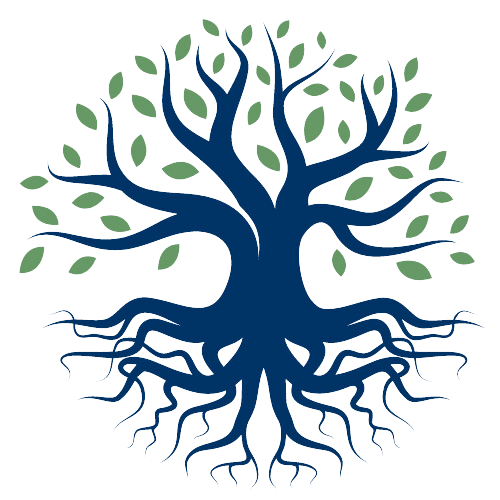Welcome to another enlightening journey on the path of self-discovery. Today, we delve into the fascinating world of self-awareness and emotional intelligence. These two concepts are not only interconnected but also play a vital role in our personal and professional development.
Importance of Self-Awareness and Emotional Intelligence in Personal Development
Self-awareness and emotional intelligence are like two sides of the same coin. They are intertwined and complement each other in our journey of personal growth. Being self-aware means understanding our emotions, strengths, weaknesses, thoughts, and beliefs. On the other hand, emotional intelligence is the ability to recognize, understand, and manage our emotions and those of others.
“Emotional intelligence is a way of recognizing, understanding, and choosing how we think, feel, and act.” – Daniel Goleman
Understanding Self-Awareness
Self-awareness is the conscious knowledge of one’s own character, feelings, motives, and desires. It’s like looking into a mirror and seeing ourselves as we truly are, not as we wish to be.
In both personal and professional life, self-awareness plays a crucial role. It helps us understand ourselves better, improves our relationships, and guides our decisions and actions.
Emotional Self-Awareness Definition
Emotional self-awareness is the ability to recognize and understand our own emotions. It involves being aware of how our emotions affect our thoughts and actions, and how they influence our interactions with others.
Emotional Self-Awareness Examples
For instance, if you are aware that you are feeling anxious about a presentation, you can take steps to manage your anxiety. You might practice your presentation several times, seek feedback, or use relaxation techniques to calm your nerves.
Understanding Emotional Intelligence
Emotional intelligence, as defined by psychologist Daniel Goleman, is the ability to recognize, understand, and manage our own emotions and the emotions of others. It is a crucial skill in our personal and professional lives, helping us navigate our relationships, make decisions, and achieve our goals.
Emotional intelligence awareness involves being aware of our own emotions and those of others and using this awareness to guide our thoughts and actions. For example, if you notice that a colleague is feeling stressed, you might offer to help with their workload or provide a listening ear.
Example of Self-Management in Emotional Intelligence
Self-management in emotional intelligence involves controlling our own emotions and adapting to changing circumstances. For example, if you are feeling frustrated about a work situation, you might take a few deep breaths, take a break, or use problem-solving strategies to address the issue.
Self-Control Emotional Intelligence
Self-control is a key aspect of emotional intelligence. It involves managing our impulses and emotions, even in difficult situations. For example, if someone says something that upsets you, instead of reacting impulsively, you might take a moment to calm down and think about the best way to respond.
The Role of Self-Awareness in Emotional Intelligence
Self-awareness is the cornerstone of emotional intelligence. It is the first step towards understanding our emotions and how they affect our thoughts and actions. As Daniel Goleman, a renowned psychologist, and author of the book “Emotional Intelligence,” puts it:
“Self-awareness is the first component of emotional intelligence. Without being aware of and understanding our own emotions, it will be hard for us to move into the other emotional competencies like self-management and social awareness.”
Goleman’s Self-Awareness
Goleman’s concept of self-awareness encompasses not just understanding our emotions, but also recognizing their impact on our work performance, personal relationships, and our physical and mental health. It’s about knowing our strengths and weaknesses and feeling confident about our self-worth.
Emotional Self-Awareness: A Primer by Daniel Goleman
In his primer on emotional self-awareness, Goleman emphasizes the importance of recognizing our emotions as they occur. This real-time awareness allows us to manage our emotional reactions to situations and make better decisions.
Relationship Between Self-Awareness and Emotional Intelligence
The relationship between self-awareness and emotional intelligence is a symbiotic one. Self-awareness is the foundation of emotional intelligence, and emotional intelligence, in turn, enhances our self-awareness. By understanding our emotions, we can manage them more effectively, leading to improved emotional intelligence.
Developing Emotional Self-Awareness
Developing emotional self-awareness is a lifelong journey. It involves introspection, mindfulness, and a willingness to confront our emotions, even the uncomfortable ones.
Importance of Developing Emotional Self-Awareness
Developing emotional self-awareness is crucial for personal growth and emotional well-being. It allows us to understand our emotional triggers, manage our emotional responses, and build healthier relationships.
Strategies for Developing Emotional Self-Awareness
Here are some strategies to develop emotional self-awareness:
- Mindfulness: Practice being present in the moment and observing your thoughts and feelings without judgment.
- Journaling: Write about your thoughts, feelings, and experiences. This can help you identify patterns and gain insights into your emotions.
- Feedback: Seek feedback from others about your emotional responses. This can provide a different perspective and help you understand how your emotions affect others.
Daniel Goleman: How to Improve Self-Awareness
According to Goleman, one of the best ways to improve self-awareness is through mindfulness meditation. This practice helps us focus on our present experiences and emotions, enhancing our self-awareness.
Improving Self-Awareness in Emotional Intelligence
Improving self-awareness in emotional intelligence involves recognizing and understanding our emotions, and using this understanding to manage our emotional responses. This can be achieved through practices like mindfulness, self-reflection, and feedback from others.
Increasing Self-Awareness of Emotional Intelligence
Increasing our self-awareness of emotional intelligence involves not just understanding our own emotions, but also recognizing and understanding the emotions of others. This can enhance our empathy, social skills, and relationship management, all key components of emotional intelligence.
The Role of Emotional Intelligence in Personal Development
Emotional intelligence plays a pivotal role in personal development. It’s not just about understanding and managing our emotions, but also about using this understanding to improve our relationships, achieve our goals, and lead a more fulfilling life.
Emotional Intelligence for Personal Development
Emotional intelligence is a key driver for personal development. It helps us understand and manage our emotions, improve our relationships, make better decisions, and cope with stress more effectively. It also enhances our empathy, social skills, and leadership abilities, contributing to our overall personal growth.
Social Awareness EQ
Social awareness, a key component of emotional intelligence, involves understanding and responding to the emotions of others. It helps us build stronger relationships, work effectively in teams, and navigate social situations with ease.
EQ Self-Awareness
EQ self-awareness refers to the ability to recognize and understand our own emotions. It is the foundation of emotional intelligence and a crucial skill for personal development. By improving our EQ self-awareness, we can manage our emotions more effectively, make better decisions, and improve our relationships.
Conclusion
In conclusion, self-awareness and emotional intelligence are powerful tools for personal development. They help us understand and manage our emotions, improve our relationships, and lead a more fulfilling life.
Remember, developing self-awareness and emotional intelligence is a lifelong journey. It requires patience, practice, and a willingness to confront our emotions, even the uncomfortable ones. But the rewards are well worth the effort.
Remember, the journey of self-awareness and emotional intelligence is not a destination, but a continuous process of growth and self-discovery. Keep exploring, keep growing, and keep rewriting your story!
“Your visions will become clear only when you can look into your own heart. Who looks outside, dreams; who looks inside, awakes.” – Carl Jung
Thank you for joining us on this journey of self-awareness and emotional intelligence. We hope you found this article enlightening and inspiring. Stay tuned for more insightful articles on self-awareness and personal development. Until then, keep shining and keep growing!


Leave a Reply